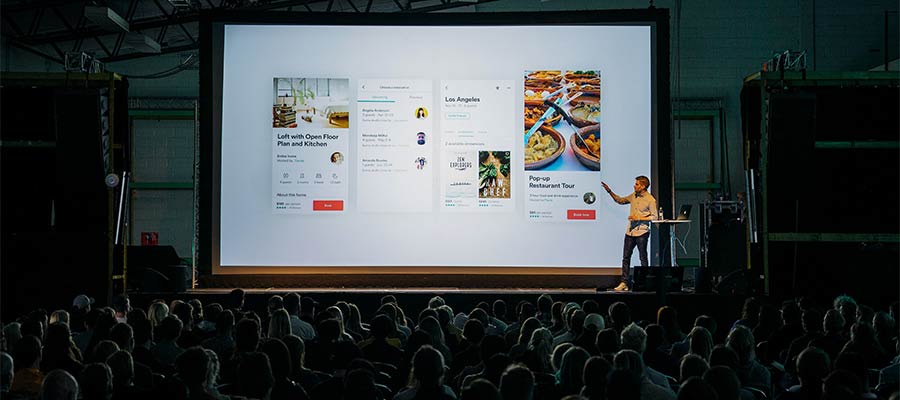Online event registration has become an increasingly popular feature. It offers a high level of convenience for both users and site owners. And this type of functionality is available to just about anyone with a website.
If you’re a web designer, the odds are that client requests for event registration capabilities have increased in recent years. Organizations were already abandoning traditional methods – and a global pandemic only served to accelerate the trend.
And there is a plethora of options for implementation. From niche WordPress plugins to third-party event services, plenty of providers have populated this space. There’s something for every need and budget.
Still, not every method is going to fit your needs. That’s why it’s important to map out the entire process – from user registration, and the handling of data, to what happens after the event.
So, before you start taking online event registrations, read our tips for choosing the right tool.
The Type and Frequency of Your Events
One thing you’ll find when working with clients is that no two are alike. This is particularly so when talking about events. Each organization has unique preferences and policies.
Therefore, you’ll want to ask plenty of questions. Find out what events look like for them. For example, try to determine:
- The number of events held per year;
- Type of events (virtual or in-person);
- How many attendees are expected for each event;
- Where events take place (physical venues or online meeting platforms);
- What costs registrants will pay;
The type and frequency of events play a vital role. Consider a client that hosts a single yearly conference. Their needs may be quite different from someone who runs monthly meetups.
Clients with multiple events could benefit from a registration system that’s tied to a calendar. This would allow users to browse events in chronological order. And displaying upcoming events can become an integral, easy-to-implement part of the site’s home page.
In-person and virtual events tend to have some key differences as well. Using a remote meeting platform such as Zoom means distributing a link to registrants. But wouldn’t it be nice to use a registration system that ties in directly with the platform? That would add a layer of convenience for users and site administrators.
Events taking place in person should include as much venue information as possible. The facility’s address, phone number, and website URL come to mind. Bonus points for systems that include a map and link to driving directions or other modes of transport.

Think About User Data Collection
It’s a safe bet that most event registration systems will collect basic contact information (name, email address). And data such as mailing addresses and phone numbers will be required for compatibility with online payment gateways.
But data needs can go well beyond those essentials. Depending upon the organization, any of the following may be necessary:
- Membership ID;
- Food preferences;
- Accessibility needs;
- T-shirt size;
- Company/organization name;
- Conference session choices;
- Opt-in to receive emails or print materials;
- Photo or other document uploads;
And those examples just scratch the surface of what’s possible. There are no hard limits on what types of data can be collected.
Thus, you’ll want to ensure that the event registration app can accommodate these needs. Some tools provide a selection of form fields that can be customized. The ability to set required fields also comes in handy.
How you access the collected data is also important. Ideally, there will be a web-based UI for viewing registrations. Options for exporting and sharing that data in various formats add even more flexibility.
Lastly, think about how registration data might tie in with services you’re already using. The aforementioned email opt-in, for example, could connect with a provider such as Mailchimp. This bit of automation will make maintenance that much easier.

Communicating before and after the Event
Staying in touch with registrants before and after an event is crucial. It’s a way to provide the latest information, along with helpful reminders. Plus, it encourages user feedback throughout the process.
Again, any functionality that ties into your existing communication tools can simplify this task. At the very least, an option for targeting the registrants of a specific event will suffice.
It’s also worth noting that communication goes beyond sending an email. Your website can also serve as an important hub. It can host event info and allow registrants to make changes to their reservations.
Not every event app is suited for this type of use. However, you might employ a shopping cart or membership plugin to fill in the gaps.
That’s one advantage of using WordPress or a similar content management system (CMS). It’s easy to add related functionality that enhances event registration. Users are empowered to do more, while site owners have more options to manage events and registrants.

Choose the Right Online Event Registration Platform
When accepting online event registrations, the goal is to implement a process that is easy and intuitive for users. On the flip side, it also needs to conform to the needs of clients. It should offer flexibility when collecting data and administering registrations.
Perhaps the biggest hurdle in achieving this is in choosing the right platform. With so many options, it can be difficult to narrow them down.
It all starts with understanding the project’s needs, however. Once you know the type and frequency of events, along with the data and communication requirements, you’ll have a clearer picture of how things should work. From there, you’ll be able to determine which platform makes the most sense.
And the experience you’ll gain is valuable. It will be of great help as you work on similar projects in the future.

